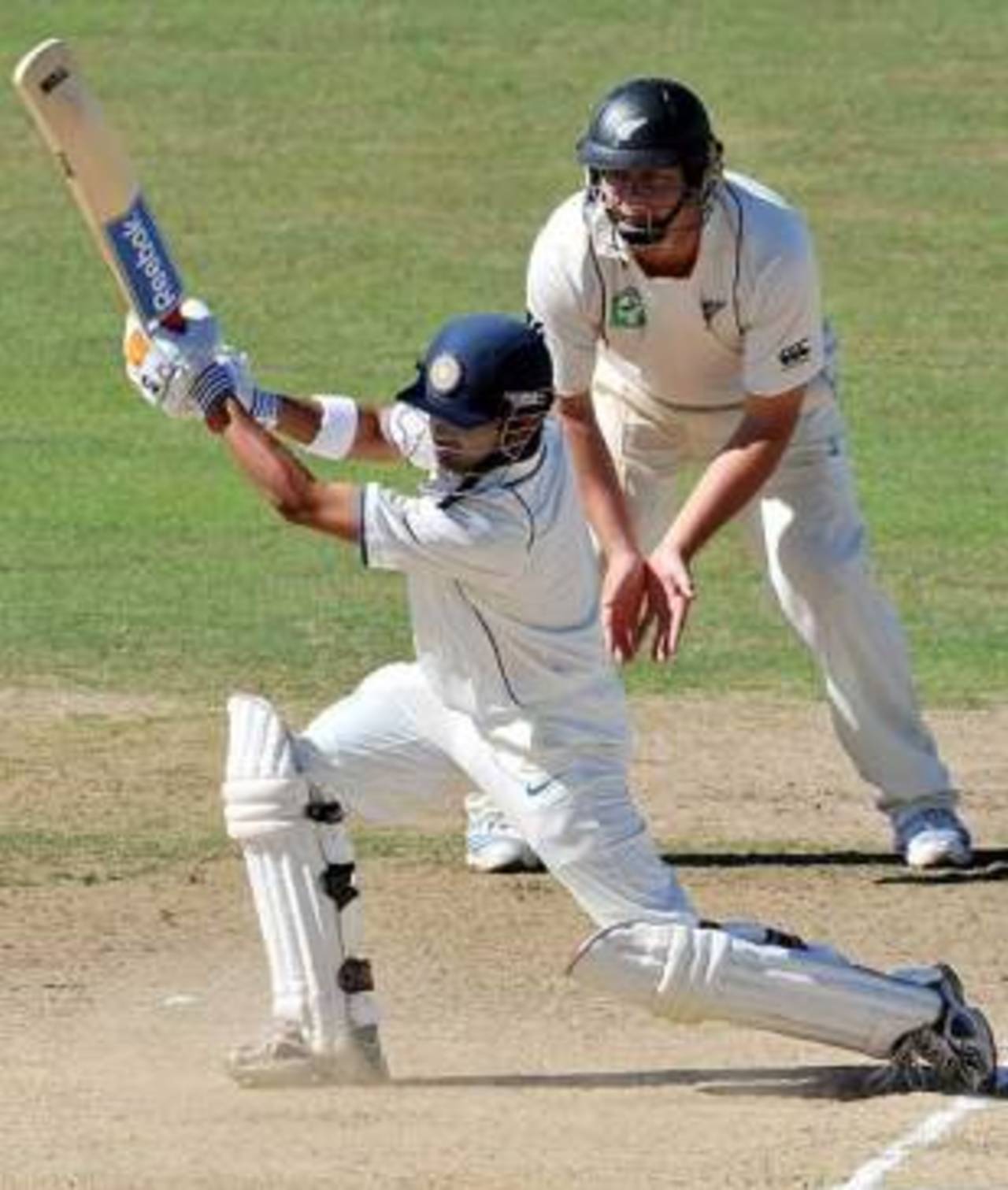Unshaken and unstirred
The greatest test that Gautam Gambhir passed was not only to survive the fourth day, but to come back on the fifth and renew the battle with complete concentration
Sidharth Monga in Napier
30-Mar-2009

Gautam Gambhir played 643 minutes and 436 balls for 137 runs, to save the Napier Test. • Associated Press
Mark Greatbatch batted for 655 minutes and 435 balls for his unbeaten 146 to save the Perth Test in 1988-89. It wasn't too different from the innings Gautam Gambhir played - 643 minutes and 436 balls for 137 runs, to save the Napier Test.
Greatbatch talks about how he set himself small targets. "You are following on, 290 behind, and it was about batting out time," Greatbatch remembers. "[Set] little targets. An over meant four minutes, four overs were 15 minutes. Eight overs meant half an hour, and 15 were an hour." Taking that formula forward, 15 overs would mean a drinks break, the same cycle repeated would mean a session break, and that repeated three times a day would mean stumps.
For Gambhir, the cycles started with 74 minutes remaining on the third day. By the end of the fourth day, he had seen through four such drinks breaks, two session breaks and another two interruptions for stumps. He got breaks from the intense concentration by opting for a cap when the spinners operated together, and then switching to helmets as a fast bowler approached. He would have been a really tired man last night, physically, and more importantly, mentally. Suppressing his natural dominating game for more than seven hours and showing fierce focus to take India into the final day would have drained his mind.
That was not the tough part, though. It was more difficult knowing that his job had not yet been completed - the team needed to bat through at least two more drinks breaks and two more session breaks to save the Test. He would need to get the adrenaline down, get a good night's sleep, and then get himself up again. It was difficult to imagine how much more Gambhir could dig into. Did those reserves of concentration exist?
It would have been tempting to take the easy route, though. To go for quick runs. No one would complain if he had got out. There were two of the best Test batsmen of this era around him, with another talented batsman to follow. The pitch was flat and Gambhir could have easily gone for quick runs. But he didn't leave the job unfinished, rather he started it anew.
In the first hour today, he added eight runs. In that first hour, Sachin Tendulkar got out as well. The team was still in deficit as the spinners kept tempting him with wide balls thrown up outside off. He still didn't give in to the temptation.
In the end, he added only 35 to his overnight 102. But runs didn't matter today. Crucially he added 209 minutes to his 434 minutes of stay overnight. And that's what mattered.
Not long ago, Gambhir was an impetuous young man not doing justice to his quick footwork and wide array of strokes. There were technical flaws that the bowlers gleefully exploited. But he has taken care of the front foot that used to fall over. He may elbow a bowler now and then, but he has shown he can concentrate for long periods of time.
After close to 11 of his finest hours in top-level cricket, Gambhir will be seen in a different light, the temperamental tough kid is left far behind. His indebted captain, Virender Sehwag, has taken the lead. "I think Gautam played an innings of a lifetime," Sehwag said. "I can say that because hardly any player plays for almost 11 hours nowadays. He is the one who saved the game for us. I think we can call him the second Wall of the Indian cricket team. This one comes from north."
Sidharth Monga is a staff writer at Cricinfo